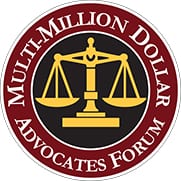The Art Institute of Chicago, home to a world famous collection including Vincent Van Gogh’s The Bedroom, Grant Wood’s American Gothic, Edward Hopper’s Nighthawks, and Georges Seurat’s A Sunday Afternoon on the Island of La Grande Jatte, fired all of its trained volunteers and guides last month, who were mostly older white women.

Image Source: tripadvisor.com
Until their firing, the Art Institute had more than 100 docents, 82 of whom were active. The volunteers trained twice a week for 18 months, done five years of research and writing, and participated in monthly and biweekly trainings.
The Art Institute’s executive director of learning and engagement, Veronica Stein, emailed them all to fire them. Officially, the museum explained that it decided to remove the mostly white group of unpaid volunteers as part of a “multi-year transition” to a “hybrid model that incorporates paid and volunteer educators.”
In Illinois, an employer cannot fire an employee based on that person’s race, color, religion, sex, national origin, ancestry, age, order of protection status, marital status, disability, military status, sexual orientation, or pregnancy. However, it’s not that such protections extend to unpaid interns or volunteers. In 2015, however, Illinois did extend workplace protections against sexual harassment to unpaid interns.
In California, Volunteers Cannot Be Harassed or Fired for Illegal Reasons
The California Fair Employment and Housing Act protects even unpaid interns and volunteers from illegal harassment and discharge. An employer can terminate an employee, volunteer or intern for anything except for race, color, ancestry, national origin, religion, creed, age (over 40), mental disability, physical disability, sex, gender, pregnancy, childbirth, breastfeeding, sexual orientation, gender identity, gender expression, medical condition, genetic information, marital status, and military/veteran status.

Image Source: thedali.org
According to FEHA’s Unpaid Interns and Volunteers section, it is unlawful for an employer to:
“Discriminate against a person serving an unpaid internship or other program providing unpaid work experience in the selection, termination, training, or other terms of treatment of that person on any protected basis (section 11009)(e).); or
Subject unpaid interns and volunteers to unlawful harassment (section 11019(b).)”
What do you think? Should unpaid interns and volunteers have the same workplace protections as paid employees?










